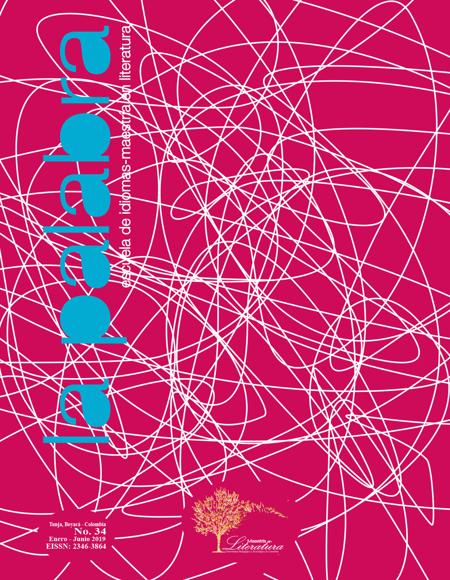Eastern Literature as Knowledge Field and Training: an Aesthetical and Philosophical Journey to the Teacher’s Practice

Abstract
Within the framework of professional practices at the Faculty of Education of University of Antioquia and its Literature and Spanish undergraduate program, this paper intends the understanding and ack- nowledgement of the formative experience that took place in the Eastern Literature Training research group –White Cherry ́s Workshop– and the reading aloud cycle –The Internal Time–, both of them being part of the degree project named “The Heart on the Tip of the Brush: Eastern Literature from an Esthetical and Philosophical Perspective as a Contribution to the Humanistic Education”. Both spaces are characterized as they acquire a formative sense, where the preservice teacher has the possibility to build pedagogical knowledge while teaching literature. Thus, it is raised the reflection on how the teacher, during their practices, interacts with some cultural, literary and historical knowledge. The con- clusion expected is that the practice, at the workshops’ sceneries in the training research group and the readings aloud, enables a reflection axis, construction of knowledge and inquiry, regarding other ways of thinkingKeywords
pedagogical practice, eastern literature, literary training, esthetical training, pedagogical training
References
Andruetto, M. T. (2014). La lectura, otra revolución. México: Fondo de Cultura Económica.
Cárdenas Páez, A. (2004). Elementos para una pedagogía de la literatura. Bogotá: Universidad
Pedagógica Nacional.
Castro-Gómez, S. (2007). Deconolizar la Universidad: La hybris del punto cero y el diálogo de saberes.
En S. Castro-Gómez & R. Grosfoguel, El giro decolonial. Reflexiones para una verdad
epistémica más allá del capitalismo global. Bogotá: Siglo del hombre Editores.
Kaltenark-Ghequier, O. (1952). La literatura china. Barcelona: Salvat Editores.
Kasuya, S. (1968). Japón: hacia una nueva literatura. Ciudad de México: El Colegio de México.
Kenne, D. (1953). La literatura japonesa. Ciudad de México: Fondo de Cultura Económica.
Lin, Y. (1960). La importancia de vivir. Buenos Aires: Editorial Sudamericana.
Maillard, C. (2000). La sabiduría como estética. China: confucianismo, taoísmo y budismo. Madrid:
Ediciones Akal.
Maillard, C. (2017). La razón estética. Barcelona: Galaxia Gutenberg.
Mishra, P. (2014). Las ruinas de las imperios. La rebelión contra occidente y la metamorfosis de Asia.
Barcelona: Anagrama.
Nhat Hanh, T. (2015). Silencio. El poder de la quietud en un mundo ruidoso. Barcelona: Urano.
Petit, M. (2004). Lecturas: del espacio íntimo al espacio público. Ciudad de México, México: Fondo de
Cultura Económica.
Román López, M. T. (2012). Reflexiones sobre el silencio y el lenguaje a la luz de oriente y occidente.
Revista Internacional de Filosofía, (56), 53-65.
Rosenblatt, L. M. (2002). La literatura como exploración. México: Fondo de Cultura Económica.
Zambrano, M. (2011). Filosofía y educación (Manuscritos). San Vicente, Alicante: Editorial Club
Universitario.
Zambrano, M. (2017). Claros del bosque. Madrid: Ediciones Cátedra.